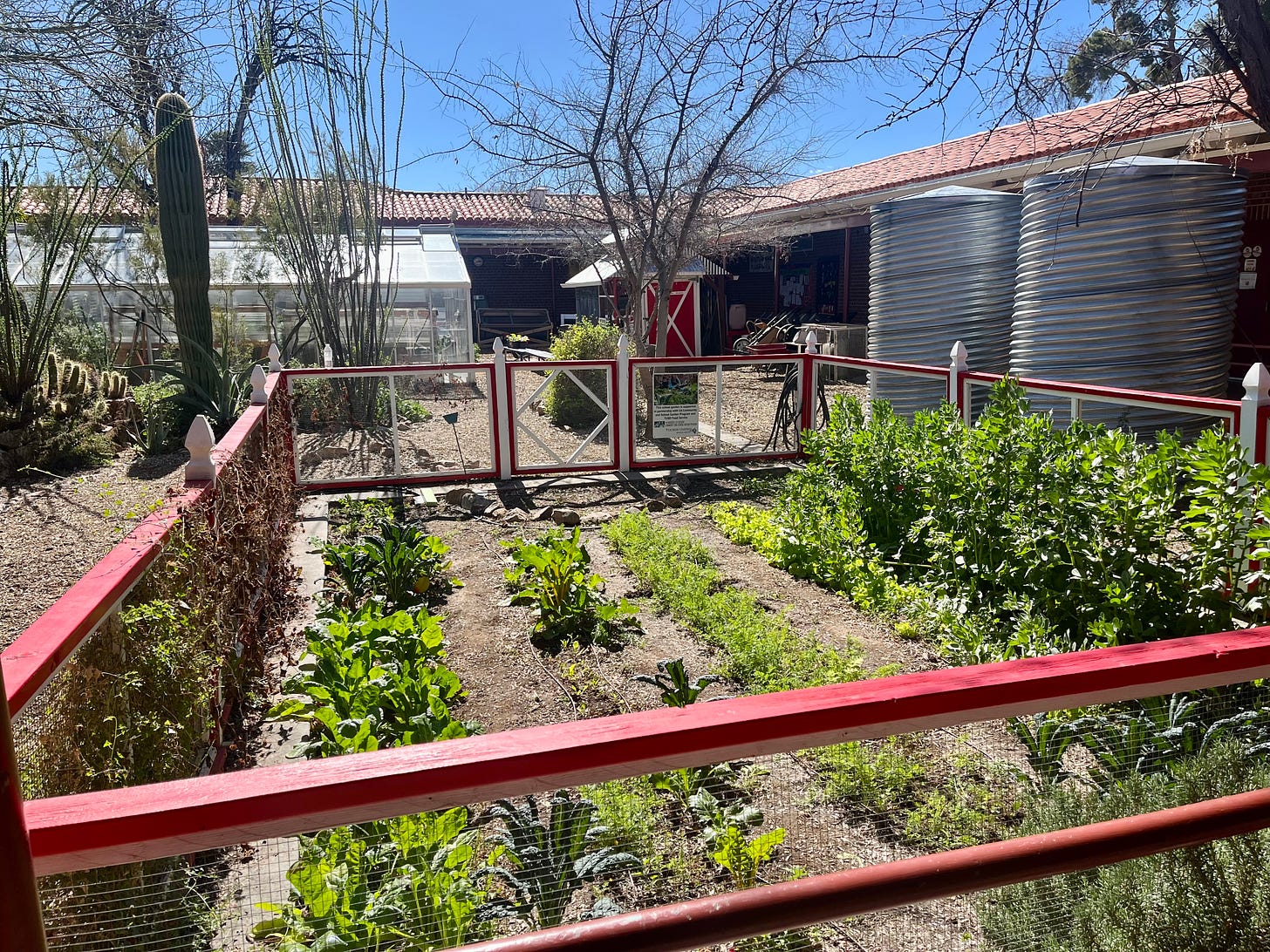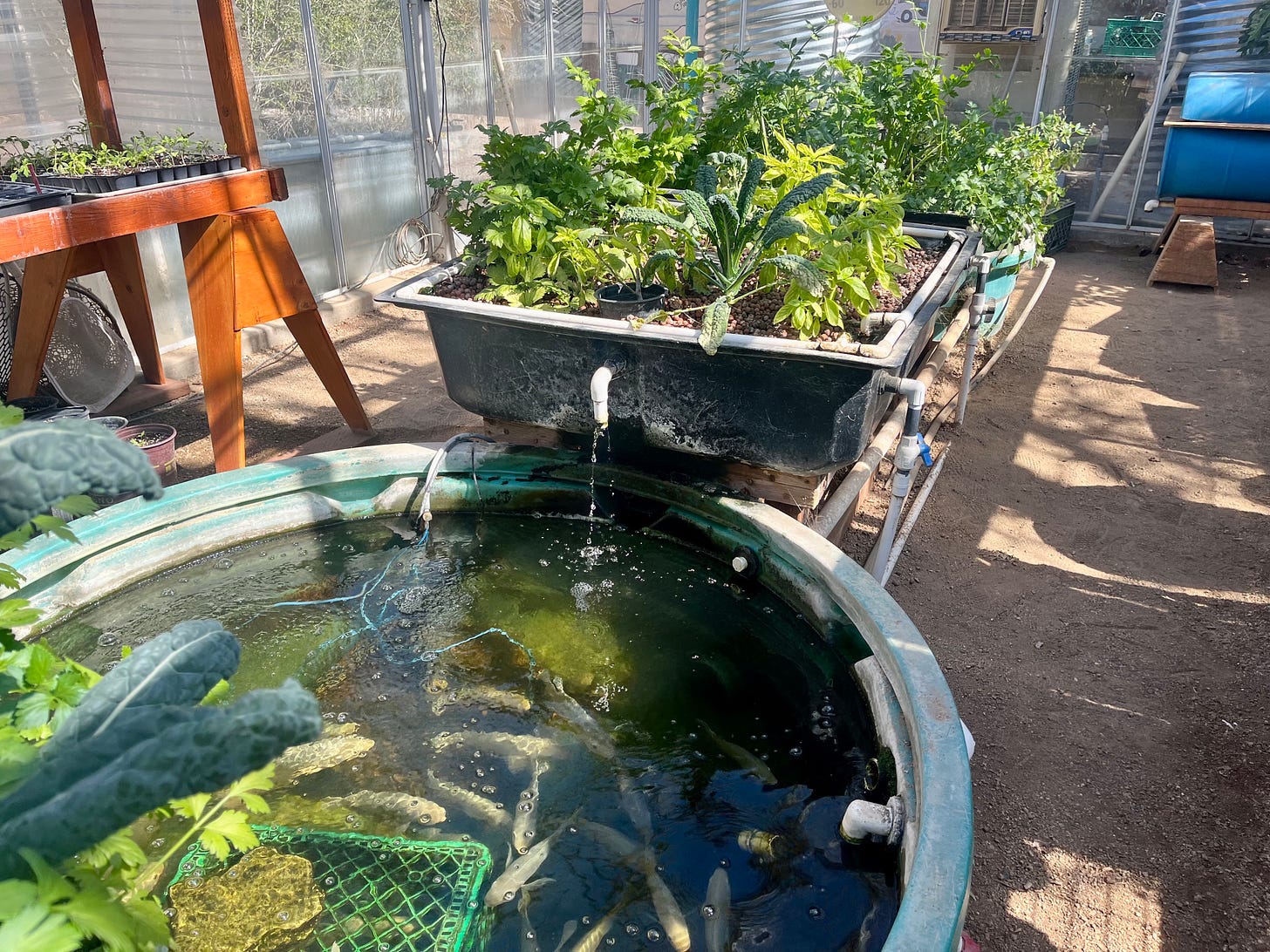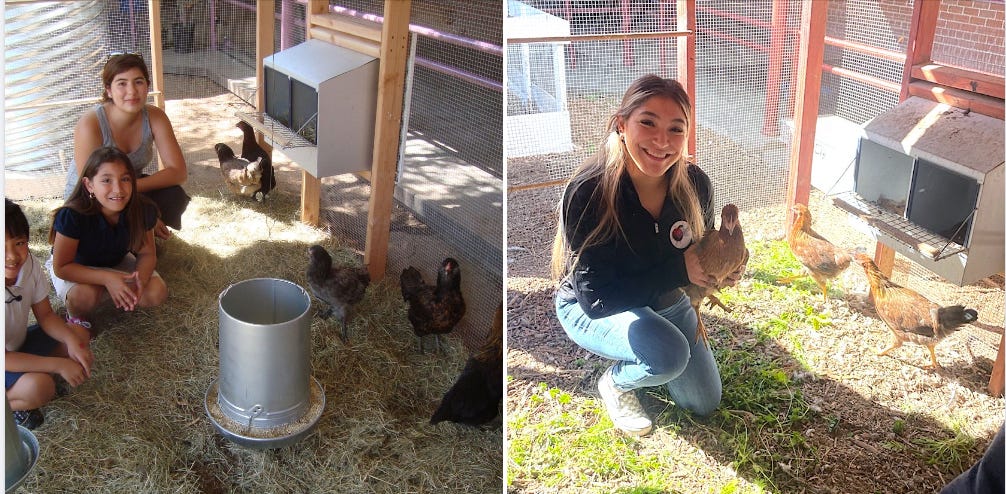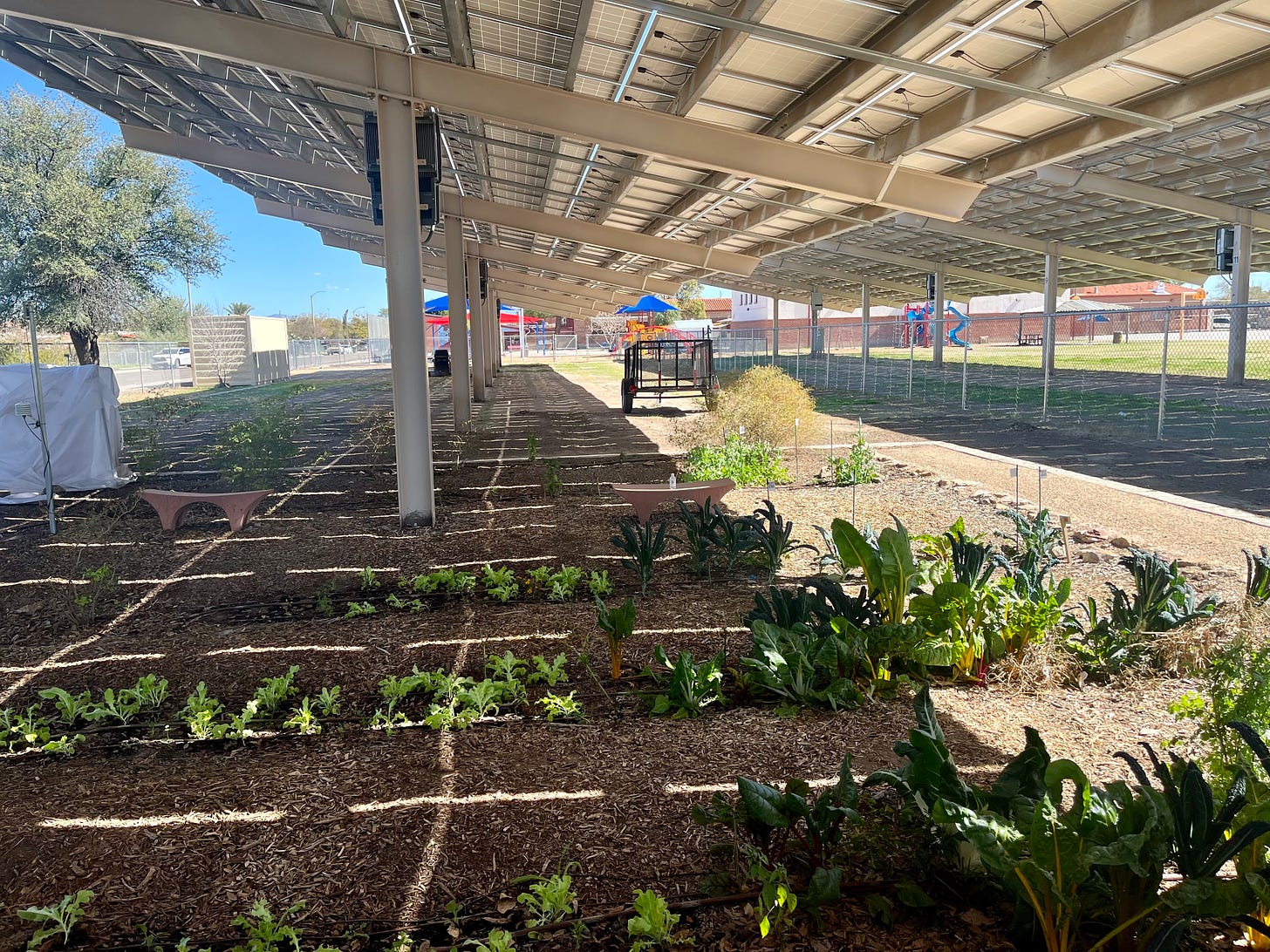It's bloom season for UA's school garden program
UA's School Garden Workshop has impacted thousands of local kids and educators. It's about to expand its footprint and reach in a very big way.
Sunday marks the start of Sunshine Week, a nonpartisan collaboration among groups in journalism, education, government and private sectors that shines a light on the importance of open government and public records.
We’re big believers in both of those things and our careers have been shaped by stories that have relied heavily on access to public information.
All next week, Caitlin and Curt will be sharing personal stories about how our lives and careers are impacted by open records laws and reminding you of how important freedom of information laws and local journalism are to your day-to-day lives.
We think Sunshine Week is the perfect time to shine a light on the fact that fighting for public information to be made public isn’t always easy or free, and we can’t do any of this without your support. Help us help you stay informed about the issues that impact your lives.
On an unrelated note, we’re doing things a little differently today and bringing you a standalone story. We’ll be back on Monday with another edition of “The Daily Agenda.”
The day before rodeo break, students at Manzo Elementary celebrated in the courtyard during lunchtime with music, games and a meal that had a special ingredient: fruits and vegetables grown in the school’s garden.
The students who tend to the garden were proud to eat and share with their classmates food they’d help grow, but the significance of school gardens goes far beyond bolstering student pride, encouraging healthy eating and providing hands-on learning.
Gardening can help meet students’ social and emotional needs, and there’s data to back that up.
A recent study published in the scientific journal Nutrients showed that children who participate in garden programs have better mental and physical health and wellbeing. School garden programs can help prevent food insecurity, child obesity and other health problems, and support students’ social and emotional intelligence.
Manzo’s garden in Barrio Hollywood is part of a network of more than 70 school gardens that are supported by the University of Arizona’s School Garden Workshop program. The program has experienced tremendous growth since Moses Thompson started its first, and now flagship, garden at Manzo back in 2006, when he was working for the school as a counselor.
But the program isn’t done growing yet and its reach is about to expand even further. Organizers are looking to break ground next month on a sprawling new garden adjacent to TUSD’s Mansfield Middle School that will include a greenhouse, classroom space and a commercial kitchen where students can prepare food to sell.

The new Sprouts House campus will largely serve Mansfield students, but also increase the program’s capacity to train teachers from other districts and states to use school gardens in their teaching and to support healthy eating.
“That’s the secret sauce. Training and inspiring teachers to really embrace this stuff, then giving them UA intern support to keep it going,” Thompson told the Tucson Agenda during a tour of Manzo’s garden installations.
In the 2022-23 fiscal year, the program impacted more than 34,000 kids and teens in the state, according to its annual report. During that same time, 2,500 K-12 students in the region were served through the workshop’s meal kits, field trips and culinary lessons, and 550 educators were trained in ways to integrate school gardens into their curriculum.
Artificial intelligence can’t make a salad
In 2009, a few years after Thompson started the Manzo Ecology Program, the UA started its own independent School Garden Workshop program, with a three-person team working with one high school class. A year later, a team of 10 trained students helped to support school gardens at several schools, including Manzo.
In 2012, it transitioned into a formal class and by 2014, it had grown to a program that supported 50 interns a semester working at partner sites, including schools and community gardens. Worlds finally collided a year later, when Thompson officially joined the School Garden Workshop program as a coordinator between the UA and TUSD.
These days, Thompson oversees the UA School Garden Workshop’s staff of 11. He also manages a team of 50 interns each semester, who are placed at about 20 different partner school gardens, which aim to reflect the culture and heritage of their students.
The program focuses on serving underfunded schools and has garnered international attention, with delegations from Japan and the UK coming to Tucson to learn more. It’s partnering with a group in Birmingham, Alabama and has previously worked with schools in South Florida to help create a similar program.
“Both the UA and the school district has really embraced it,” Thompson said. “All of this stuff grew as a grassroots efforts, but now it’s very much a part of those institutions.”
TUSD food services supports the program’s work, serving produce grown in school gardens in cafeterias and during special events, like Manzo’s rodeo cookout. And neighbors of schools including Manzo benefit from and help subsidize the program, buying produce at student-run farmers markets.
The program and its students also have the backing of local restaurateurs, including the Flores family. Fresh produce from Manzo and JB Wright Elementary schools is featured in certain dishes at several of their Sí Charro restaurants and since 2018, a portion of all sales at the family’s Charro Vida restaurant have gone towards supporting the program.

Flores Concepts President Ray Flores said the program is one of the most rewarding ventures his family has ever been involved with, calling it “so Tucson, in so many ways.”
“This speaks volumes to the culture of Tucson, the Hispanic food culture and the diversity of all of that,” Flores said. “They figured out a way to use food and sustainability and the life cycle of growing food to turn schools around.”
On top of teaching kids about nourishment and sustainability, the program also teaches them about commerce and lets them know early that working with food is a viable career option.
“No matter what people say about (artificial intelligence,) have AI try to make a salad,” Flores said.
Planting the seeds of systems change
While other districts have reached out to see about getting involved with School Garden Workshop, Thompson said the program’s staff and interns have reached capacity in terms of their ability to provide direct, hands-on support.
Because the schools that partner with the program span the Santa Rita Mountains to the casino, responding to support calls can be difficult if the schools that need help are far apart.
But even though the program can’t provide hands-on support to any additional schools, it’s still able to help teachers learn how to do the work themselves, which Thompson called the larger focus of the program.
“There’s such a need in the community. I believe this work is really good and really impactful, but I also feel like I’m barely scratching the surface,” he said. “Rather than spreading myself thin, I would rather go deep in the communities that really need it and try to create systems change.”
The school garden at Manzo has done just that, spurring community projects in nearby neighborhoods and gaining international recognition. The garden also is an important part of the scientific community, as it includes a research garden where students are comparing plants grown under full sun to those grown under a solar panel cover.
The long-term research question is how the different environments affect the plants’ life cycle, production and seasonality, with students using QR codes to track observations. The research garden has been up and running since 2016 and is overseen by students at the UA.
Growing the next generation
Thompson said that one of the greatest measures of the program’s impact have been the institutional changes, including TUSD food services serving food grown in schools in the cafeteria and the UA allowing students to earn credits through the class and internship.
“This is community engagement for their students that gives them workforce training skills,” Thompson said. “And the district knows they’re getting good enrichment. Public education is so underfunded, there’s not a school in Tucson that has a (maintenance and operations) budget that can support programming and all of the infrastructure work we’ve done.”
And given its current financial situation, the UA likely couldn’t support its part of the program, either. But it’s not funded by the university. Instead, the UA Foundation serves as a fiscal sponsor and the program raises its $400,000 annual support from family foundations and other donors.
The Sprouts House expansion project, which will be located on Mountain Avenue between 6th and 7th streets, will require significantly more capital, but has already secured a $1 million pledge from Sprouts Farmers Market (hence the name.)
It also has support from Tucsonan Norma Gentry, who is helping raise funds for the garden portion as a memorial to her late husband. Robert “Bobby” Delano Gentry was an avid gardener who died in January.
Norma Gentry said that after her husband’s death, her office was inundated with calls from people who wanted to do something to honor his memory. The Gentrys had learned about the School Garden Workshop through the Flores family, so she reached out to Ray Flores, who connected her with Thompson.
“Every time we had kids in our house, he’d take them to the garden. He would be so happy about this,” Norma Gentry said of the project, lovingly named Bobby’s Garden. “Gardening teaches kids so many life lessons.”

Thompson said he’s also experienced the positive impact of gardening on students, their families and the community over and over again in the nearly two decades since he planted the first seed at Manzo. The impact is generational, too, with children who spent time learning in Manzo’s garden now sharing that experience with children of their own.
He’s also seen students who worked in the elementary school gardens sign onto the School Garden Workshops program as interns, including Araceli Fuentes, who was a student at Manzo 12 years ago and is now the intern who supports its garden.
Fuentes said in a recent Facebook post that she sees herself in the students, calling the experience healing.
It’s also rewarding, Thompson said, saying it’s not uncommon when he’s on site visits to be approached by former students, eager to talk about their early years in the Manzo garden. And because the program focuses on schools where 60% or more students receive free or reduced lunch, he knows it’s truly making a difference.
“To go into those schools and be able to provide world-class programming, that feels really good,” Thompson said.








I volunteer at Manzo Elementary and see first hand what those gardens do for the children and the community. It is amazing.
The gardens are a bright spot in schools! Also in communities like Oracle with a community learning garden going back several years and thriving.